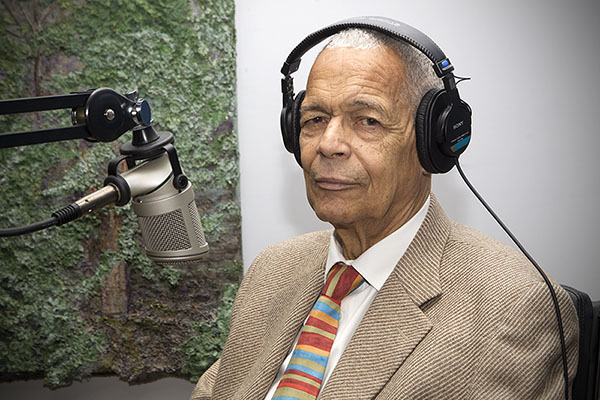Civil rights leader Julian Bond recalls lessons from his experiences as an activist, and talks about the importance of finding – and acting on – opportunities to affect change.
Transcript
Megan Hayes: Julian Bond has always been on the cutting edge of social change and leadership. From his civil rights and anti-war leadership in the 1960s to his support for gay rights in the new millennium, Bond helped define activism in our country. Mr. Julian Bond, welcome to Appalachian State University.
Julian Bond: Thank you, that’s very kind of you.
MH: There’s so much I’d love to talk with you about today, but if we could focus our conversation on race relations… I really do think we want to be a place that goes beyond the policies and the demographic bean-counting and really affects true change. So I’d like to ask your thoughts today about what it means to move forward and how we can move forward.
JB: I think you have to find ways to nurture diversity, almost as if you were growing a plant or flowers. So you have to create opportunity for people to express themselves and to say, “Here’s something we need to be doing – here’s something we need to be pushing hard at.” And you’ll be surprised at the number of people, I think, who will say, “I want to be a part of that.”
What do you think?
Share your feedback on this story.
About Appalachian State University
As a premier public institution, Appalachian State University prepares students to lead purposeful lives. App State is one of 17 campuses in the University of North Carolina System, with a national reputation for innovative teaching and opening access to a high-quality, cost-effective education. The university enrolls more than 21,000 students, has a low student-to-faculty ratio and offers more than 150 undergraduate and 80 graduate majors at its Boone and Hickory campuses and through App State Online. Learn more at https://www.appstate.edu.





![How NCInnovation Is Rethinking Economic Development in North Carolina [faculty featured]](/_images/_posts/2026/02/rethinking-economic-development-600x400.jpg)






